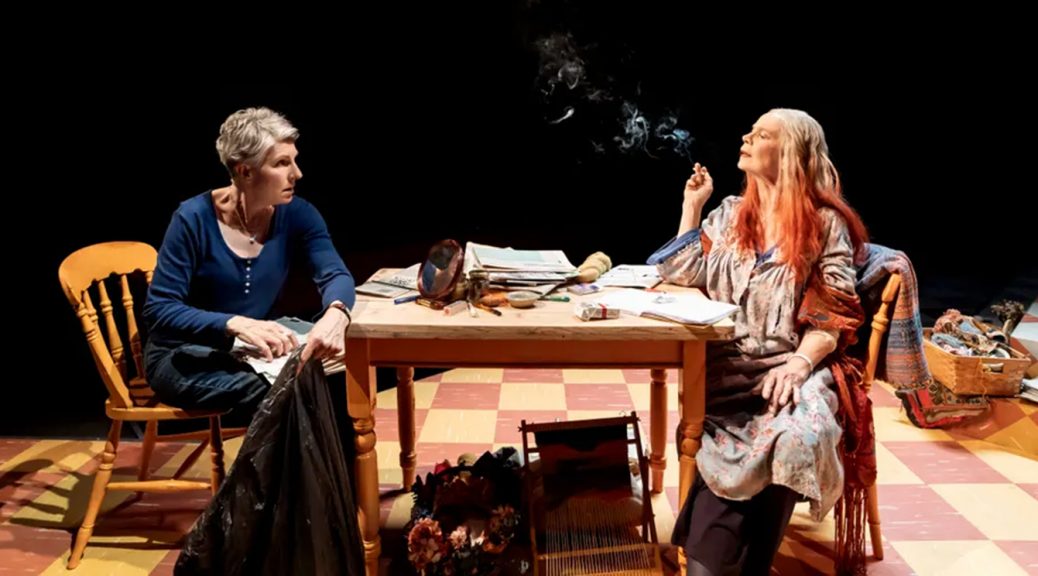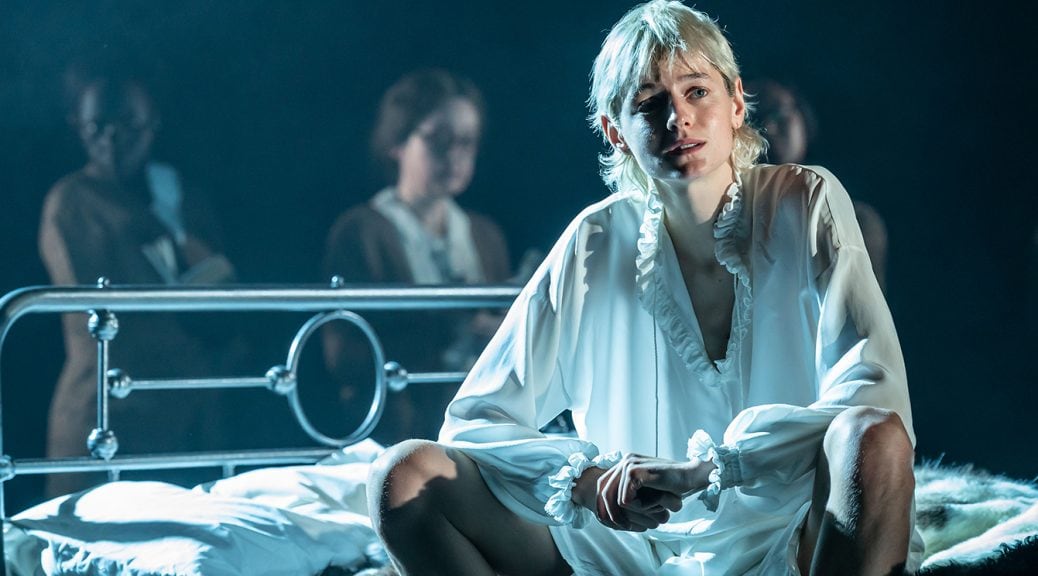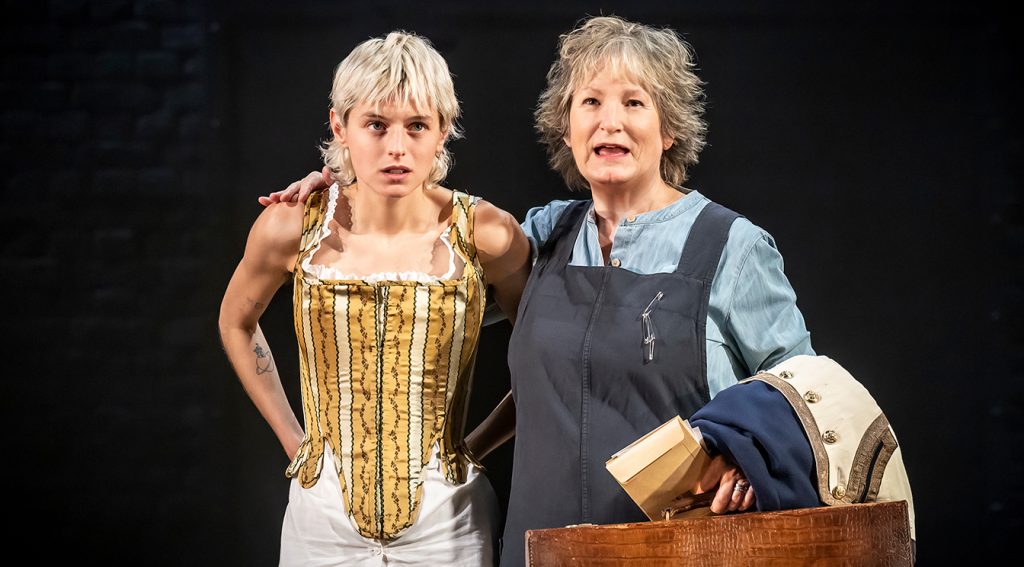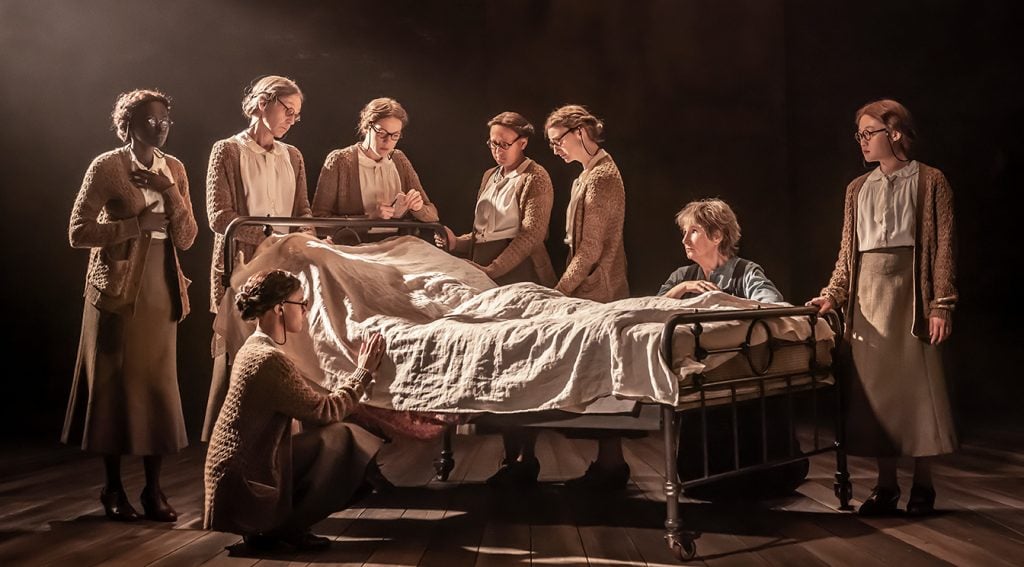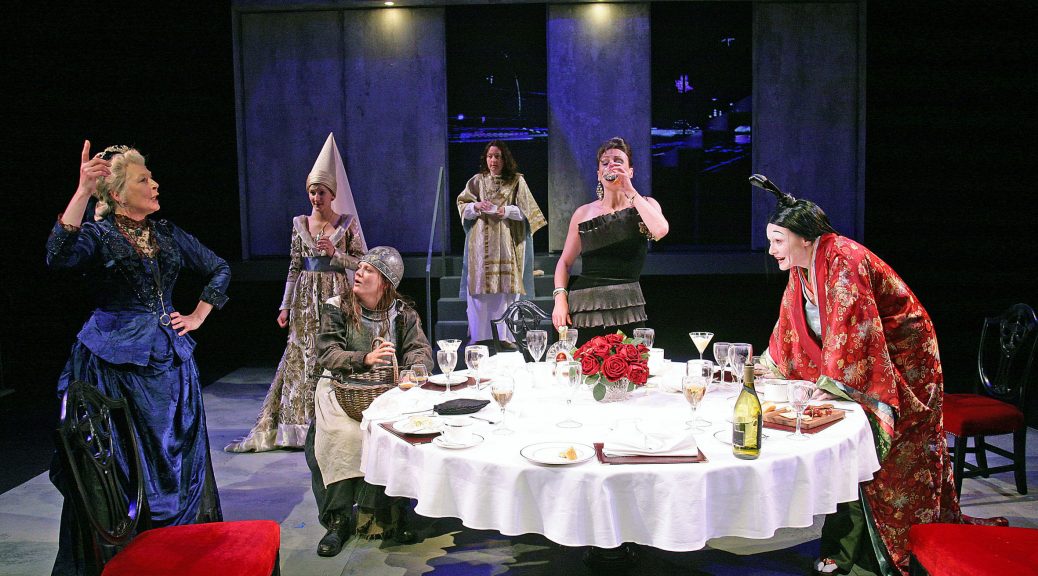This new play, written and directed by Anna Mackmin, works hard but comes too close to being hard work. Performances from superstars Celia Imrie and Tamsin Greig make it a must-see, but it’s hard to escape the idea that without them patience would run short.
Looking back at the relationship of mother and daughter, Beth and Bo, after the former has a stroke, is a powerful story. But then, why wouldn’t it be? Much of the action is set on a deathbed.
Mackmin tries to avoid sentimentality, but her writing, like the subject, is heavy. The production isn’t helped by unnecessary filmed vignettes that accompany the action, a kind of internal dialogue for Bo that includes her own troubled daughter (and lots of screaming).
These are strong characters, interesting and well-performed, but are they a touch too eccentric to believe? This old hippy and her ambitious daughter have a complicated relationship. It’s revealed that Beth’s mental health has always been a problem and Bo has suffered as a result. Be warned: some jokes come close to the bone.
Beth also suffers from dementia and Mackmin’s depiction of this is more poetic than realistic. Credit to Imrie for the delivery, which must be extremely difficult. A loss of inhibition, mood swings and anger are all ticked off. But I’m not so sure about the malapropisms. Bo still makes sense a lot of the time, her repetition is haunting, but her search for words comes too close to funny.
Mackmin’s topic of motherhood is clear enough. If you’re in doubt, Bo’s adoption of Skylar brings the theme home (we only see this other damaged character on screen until the very end). Bo is finding parenting so hard that she admits she wants to give her daughter back. It’s a brave confession that needs more exploring to convince.

There are problems, too, when it comes to the hospital staff, a trio that are well-performed but close to stereotyped. From Georgina Rich’s aloof consultant to two very different nurses (Lucy Briers and Anita Reynolds), we are prepared for a debate about end-of-life care that doesn’t really take off.
Nonetheless, going back and forth in time is a boon for the performers, who really do impress. The focus shifts to the question of “how to die” and, if the swimming metaphor is laboured, the films become better, and our perception of Beth is cleverly modulated. It’s still too long, though, and a memorial speech by Bo pushes us into weepy territory. I’m not sure, given this subject matter, that reducing your audience to tears is really a big achievement.
Until 12 April 2025
Photograph by Johan Persson

